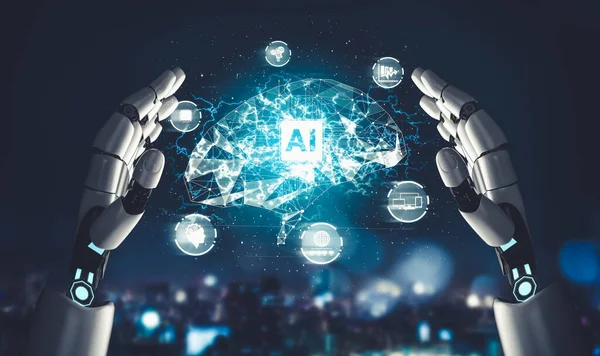AI Tools and Their Impact on Productivity: Revolutionizing Work Across Industries








AI Tools and Their Impact on Productivity: Revolutionizing Work Across Industries
AI Tools and Their Impact on Productivity: Revolutionizing Work Across Industries
Introduction
The rise of artificial intelligence (AI) has transformed how we work, enhancing productivity and efficiency across various sectors. As AI technologies advance, more businesses and individuals are leveraging AI tools for content creation, graphic design, programming, automation, and more. This blog explores the best AI tools available today and their impact on productivity across different industries.
The Power of AI in Enhancing Productivity
AI tools are designed to automate tasks, analyze data, and improve decision-making processes, ultimately allowing employees to focus on more strategic activities. Here are some key areas where AI tools are making a significant impact:
- Content Creation
- AI-powered writing assistants like Jasper and Copy.ai help marketers, bloggers, and businesses generate high-quality content quickly and efficiently. These tools can produce blog posts, social media updates, and product descriptions, freeing up time for content strategists to focus on higher-level planning.
- Grammarly and Hemingway App enhance writing quality by offering real-time grammar checks, style suggestions, and readability improvements, ensuring that content is polished and professional.
- Graphic Design
- Tools like Canva and Adobe Spark leverage AI to simplify graphic design processes. Users can access templates and design suggestions based on their content, enabling them to create visually appealing materials without extensive design experience.
- DeepArt and Artbreeder utilize AI to generate unique artwork and designs, allowing artists and creators to explore new creative avenues while saving time.
- Programming and Development
- GitHub Copilot is an AI-powered code completion tool that assists developers by suggesting code snippets and functions as they type, significantly speeding up the coding process and reducing errors.
- ChatGPT and similar models can help programmers with debugging, generating code documentation, and providing explanations for complex concepts, making the learning and development process more efficient.
- Automation of Repetitive Tasks
- Zapier and Integromat enable users to automate workflows by connecting various applications and services, reducing the need for manual intervention in routine tasks. This not only saves time but also minimizes the risk of human error.
- AI chatbots like Drift and Intercom enhance customer service by providing instant responses to common queries, allowing human agents to focus on more complex customer interactions.
- Data Analysis and Insights
- AI tools such as Tableau and Google Analytics utilize machine learning algorithms to analyze large data sets and generate actionable insights. This empowers businesses to make data-driven decisions quickly and effectively.
- Predictive analytics tools can forecast trends and customer behavior, allowing companies to optimize their marketing strategies and inventory management.
The Benefits of Implementing AI Tools
- Increased Efficiency: AI tools can perform tasks faster than humans, leading to quicker project completion and increased overall productivity.
- Cost Savings: By automating repetitive tasks, businesses can reduce labor costs and allocate resources to more strategic initiatives.
- Enhanced Accuracy: AI systems are designed to minimize errors in data analysis, content creation, and coding, resulting in higher-quality outputs.
- Improved Collaboration: AI tools can facilitate better communication and collaboration among team members, streamlining workflows and project management.
- Scalability: AI solutions can easily adapt to the growing demands of businesses, allowing them to scale operations without a proportional increase in resources.
Challenges and Considerations
While the benefits of AI tools are substantial, organizations must also consider potential challenges, including:
- Integration: Implementing AI tools into existing systems can be complex and may require training for employees to maximize their potential.
- Data Privacy: With AI systems processing vast amounts of data, ensuring compliance with data protection regulations is crucial.
- Dependence on Technology: Over-reliance on AI tools may lead to decreased human oversight and critical thinking in certain tasks.
Conclusion
AI tools are revolutionizing productivity across industries by automating tasks, enhancing creativity, and providing valuable insights. As technology continues to advance, businesses that embrace AI solutions will likely gain a competitive edge in their respective markets. By carefully selecting and implementing the right AI tools, organizations can streamline processes, boost efficiency, and drive innovation in an increasingly digital world.
Call to Action
Are you ready to harness the power of AI tools in your business? Explore the options available and start integrating them into your workflow today! Share your experiences with AI tools in the comments below.
This blog outlines the various ways AI tools enhance productivity while addressing potential challenges. Let me know if you need any changes or additional sections!



